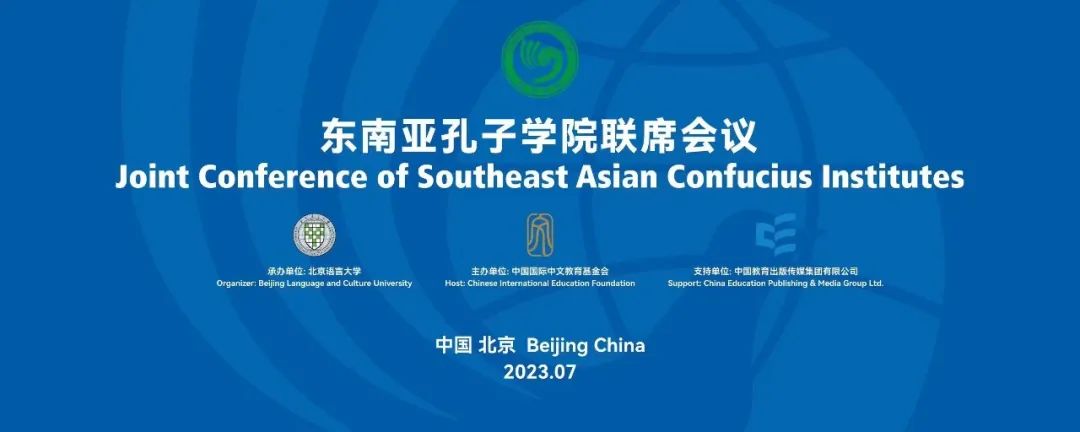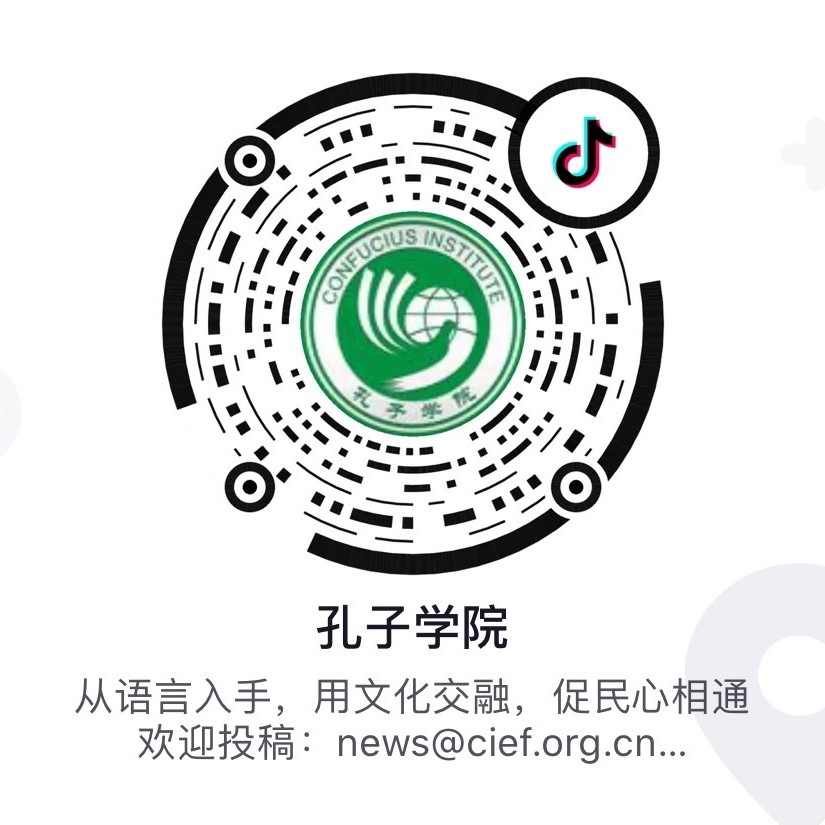Commencing on the morning of July 20, 2023, under the theme “Collaborative Innovation, Steady Development”, the Joint Conference of Southeast Asian Confucius Institutes was successfully held at the Beijing International Convention Center. Representatives totaled nearly 300 in number, from Confucius Institutes (CIs) and Confucius Classrooms (CCs) in 10 Southeast Asian countries, and Chinese and foreign partner institutions. They gathered in Beijing to share experience in the operation and management of CIs, discuss collaborative innovation among regional CIs, and plan for the future development of CIs in Southeast Asia.
The conference was hosted by the Chinese International Education Foundation (CIEF) and organized by Beijing Language and Culture University (BLCU). During the conference, there was one panel discussion, one case-sharing session, and two group discussions; the International Chinese Language Education Resource Exhibition took place simultaneously.
During the opening ceremony, speeches were given by Yang Wei, president of CIEF; Hadi Tjahjono, director of the Education, Culture and Tourism Division of the ASEAN-China Centre; Wu Jinsong, second-tier inspector of the Department of International Cooperation and Exchanges of the Ministry of Education; Hu Zhiping, deputy director of the Center for Language Education and Cooperation of the Ministry of Education; and Duan Peng, the president of BLCU. Zhao Lingshan, vice president and secretary-general of CIEF, presided over the opening ceremony.
Second-tier Inspector Wu Jinsong warmly commended the conference’s opening. He recognized the achievements of Southeast Asian CIs in terms of scale of development, diversification, specialization, and localization. Wu Jinsong pointed out that, in the new era, CIs should adhere to innovative, high quality and collaborative development, and contribute to the promotion of educational exchanges and cooperation between China and Southeast Asian countries, as well as to the enhancement of understanding and friendship among the people of these countries.
President Yang Wei spoke highly of the accomplishments of CIs in Southeast Asian countries. He emphasized the institutions’ commitment to serving local communities, as well as their initiative in promoting Chinese language education and cultural exchange activities. CIs have become a vital platform for Southeast Asian people to learn Chinese and understand China. Yang Wei stressed that Southeast Asian CIs should strengthen their collaborative development, achieve resource sharing and information exchange through the establishment of CI alliances, and build a community with a shared future for CIs in Southeast Asia. He also stressed that CIs should closely tie in with the actual circumstances of the universities and regions in which they are located, clearly define their development positioning, vigorously promote “Chinese +” education, and strive to create specialized programs, specialized courses, and specialized CIs to lead the trend of CI development around the world.
Director Hadi Tjahjono expressed in his speech that educational exchanges play a crucial role in China’s relations with ASEAN member countries. As an important component of educational exchange, CIs not only focus on teaching the Chinese language but also implement new educational models such as “Chinese + vocational education.” These unique and innovative approaches have provided a platform for interschool exchanges and expanded cooperation content between schools.
Deputy Director Hu Zhiping extended a warm welcome to both new and old colleagues attending the conference. He introduced the efforts of the Center for Language Education and Cooperation of the Ministry of Education to improve the international Chinese language education standard system. The Center is constantly improving the international Chinese language education management system, strengthening the “Three-Teach” support approach (teachers, teaching materials, and teaching methods) of international Chinese language education, and promoting the high-quality development of international Chinese language education. He provided assurances that the Center would continue to support international Chinese language education in Southeast Asian countries in terms of faculty, teaching materials, scholarship projects, and other aspects, making greater contributions to the promotion of friendly exchanges and cooperation between China and Southeast Asian countries in various fields.
President Duan Peng introduced BLCU’s achievements in cooperation with institutions in Southeast Asian countries, such as the cultivation of local Chinese language elites, support for Chinese language teachers, and innovative joint education. He expressed BLCU’s commitment to continue focusing on international Chinese language education, building Chinese language disciplines in Southeast Asia, enhancing the application of information technology in teaching the Chinese language, and nurturing more talents to meet the needs of the times.
The opening ceremony also featured the inauguration of newly established Confucius Institutes and a donation ceremony by China Literature Group.
The theme of the conference’s panel discussion was “China–ASEAN Language Education Exchange, Cooperation, and Cultural Exchange under the 10+1 Cooperation Mechanism,” chaired by Zhong Yinghua, president of Tianjin Normal University. The case-sharing session focused on “Enhancing coordinated development with Chinese and local hosts, enterprises, social organizations, and other CIs to build mutual support among CIs” and “Developing and deploying courses and programs featured Chinese + to support the social and economic development in Southeast Asian countries.” This session was presided over by Xie Yonghua, president of Nanjing Vocational University of Industry Technology, and more than 10 guests from home and abroad exchanged and shared their experiences.
The conference lasted for two days, concluding on July 21, 2023.





